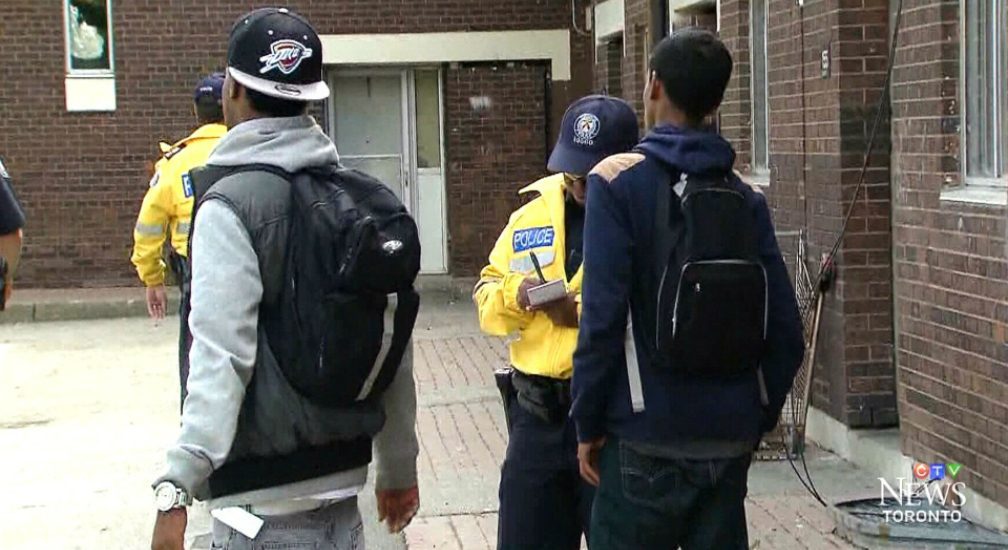
KJIPUKTUK (Halifax) – “Street checks, by the courts, are legal,” said provincial Justice Minister Mark Furey in response to the release of Dr. Wortley’s report on street checks in HRM yesterday morning.
“If we recognize the impact they are having on the community, are they appropriate? I’ve always said street checks are a valuable tool for police when used appropriately. The abuse that we are seeing, the over-representation by five times when compared to a (white) male are simply unacceptable. We have to fix it,” Furey said.
As I read those words Wednesday evening, I felt a tidal wave of emotions flood in all at once. There it is, yet another trigger! This report comes as no surprise to Black Nova Scotians, but it is another painful reminder that oppressive systems in Nova Scotia and throughout Canada continue to act on us in 2019.
Kirk Johnson’s 2003 Human Rights decision showed how police use their position of authority and power to violate the rights of African Nova Scotians. These experiences embedded in reports matter, but they also exists in the layers of trauma contained in our middle aged and elder populations, and, without interruption, in our current generation – our youths.
Hearing about human rights violations such as documented in the street check report often trigger memories and recollections of similar human rights violations suffered by African Nova Scotians. The consequences vary in each trauma victim.
I was born and raised in New Glasgow, Nova Scotia, and I assert that the behaviours happening in the HRM Police detachment echo loud and clear the behaviours I have witnessed and experienced first hand as an African Nova Scotian youth and female growing up and living in New Glasgow. All African Nova Scotian communities are affected and subjected to the same violence reported in Dr. Wortley’s report.
From the time my younger sister and I were allowed to leave our street and venture off into the larger community, around the pre-teen age, I have strong memories and accounts of being subjected to street checks and harassment by the New Glasgow Police Department.
Whether we were returning home from an evening church group, the movies, arcade, skating, a walk or Level 42, we could guarantee the police would drive by, roll their window down and commence harassment.
I vividly recall, as do many of my peer group, police officers slowly driving by us numerous times, following us as we walk, asking us our names, where we are going, where we are coming from, and who our parents were. Quite often they would start rattling off the names of black males in our community asking us “do you know where so and so is tonight?,” or “Where’s the party at tonight?”
As a young Black girl walking home at night time, these encounters with police officers were always uncomfortable yet we didn’t share much of it with our parents because while it felt wrong, it wasn’t an experience foreign to us or out of the norm.
Often times, it is the exposure of current trauma going on in our society that triggers the historical racialized abuse many of us have suffered and normalized.
Justice Minister Mark Furey spoke about the “impact” this violence has on our communities and suggested “we need to fix it.”
“Fixing it” is easier said than done.
The impact is immeasurable. The abuse of police officers’ power in our communities reaches back well into the forties and effects those living in our rural Black communities as well. It is critical to document these human right violations as these smaller communities often are subjected to a completely “unchecked” system of racial bias and anti-Black practices .
The total disregard for the ill effects of these anti-Black police practices on our elders and youths is evident in the audacious idea that somehow we must weigh this traumatizing abuse against the benefits of keeping our communities safe through these very same practices.
This is an oxymoron. Our communities are not safe, and in fact it’s these same police practices that put Black communities’ safety at risk. The evidence for this can be found deeply woven into the trauma stories of our elders and youths.
See also: Kinda hate, a poem by Angela Bowden
With a special thanks to our generous donors who make publication of the Nova Scotia Advocate possible.
Subscribe to the Nova Scotia Advocate weekly digest and never miss an article again. It’s free!



![Public statement by the African Nova Scotian Decade for People of African Descent Coalition (DPAD), on the Independent [Police] Street Checks Review](https://nsadvocate.org/wp-content/uploads/2017/07/cardingsolhalFEAT-100x100.jpg)
I was born in the 50″s. I thought by the time I grew up to be a woman with children of my own; things would have change. No !! In fact they only got worse. It now appears to me that the reason we have a police force in the first place is to harass and provoke black people. T